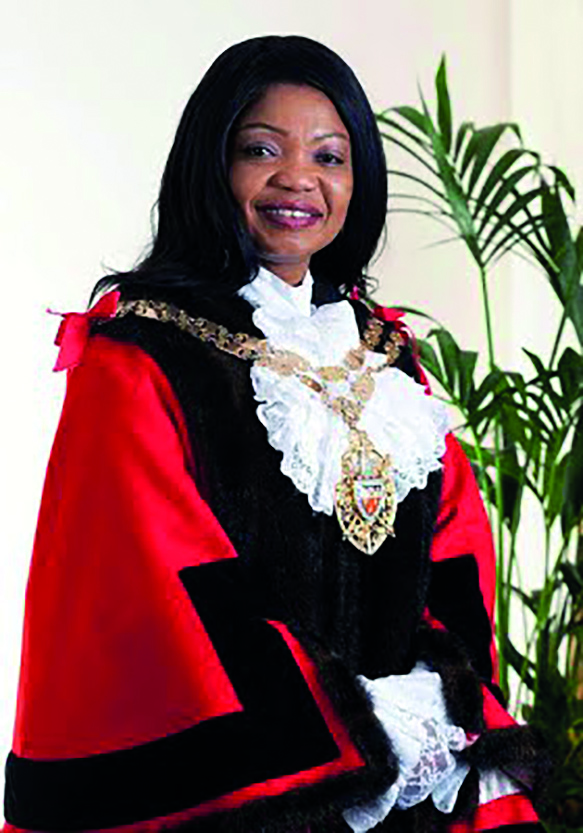


By Emmanuel Urhiofe – Black, Asian and ethnic minority communities need more action on the seven recommendations recently rolled out by Public Health England toward improving the lives of frontline staff against infection by Covid-19.
The second part of the report, which was released this week, found that racism and social inequality have contributed to the increased risk of BAME individuals contracting and dying from Covid-19.
Majority of people from the ethnic minority believes that the government has not done enough to protect the frontline staff who work long hours, sometimes without protective equipment to save lives.
While some BME community respondents voiced concerns that the recommendations have come too late others have suggested that the recommendations should be expanded to incorporate other issues affecting ethnic minorities.
The report states: “Ethnic inequalities in health and wellbeing in the UK existed before Covid-19 and the pandemic has made these disparities more apparent and undoubtedly exacerbated them.”
More than 12,000 covid-19 patients from the ethnic minority have so far lost their lives due to many factors which have been attributed to age, environment, socio-economic status and underlying health issues.
Commenting on the report, titled Beyond the Data: Understanding the impact of COVID-19 on BAME groups, TUC General Secretary Frances O’Grady said:
This report sets out the scale of the structural racism that BME people continue to face.it should never have been withheld.
“Ministers must now act to prevent more unnecessary coronavirus deaths among BME communities
We need a fully funded action plan to tackle the structural racism that continues to blight BME people life chances and health.”
The present recommendations were a follow-up to a report by Public Health England which was published by the African Voice which showed that Covid-19 have killed disproportionately high numbers of people from the ethnic minority than white people.
In the report released on the 14thof June, PHE suggested the following be introduced:
· Routine ethnicity data collection and recording across medical setting, including mandatory collection of ethnicity data on death certification.
· More research to better understand the impact of Covid-19 on BAME communities.
· Improving access, experience, and outcomes for BAME communities across care systems.
· Quickly develop a “culturally competent” occupational risk assessment tool to reduce the risk of BAME staff’s exposure to, and contraction of, coronavirus.
· Better Covid-19 education and prevention campaigns.
· Specific health promotion and disease prevention programmes.
- An effective Covid-19 recovery strategy that actively reduces wider health inequality.
Reflecting on the recommendations, Cllr Susan Fajana-Thomas, labour councillor for Stoke Newington, Hackney, and socio-political campaigner, agreed with the second and sixth recommendations but added that there is need for health promotion and improvement of opportunities for the black and ethnic minorities working in the NHS and in the wider community
She said: “Covid-19 has brought the issues of inequalities more into the lime light. It is very important that the government delivers on the recommendations as it relates to all the sectors ranging from health to housing, employment and other issues
“While it is true that people from the black ethnic communities have biological issues such as diabetes and obesity, we need to ask the reason for this in the first place. There are issues such as low income which did not afford them the opportunity to buy good organic foods despite working hours.
“Over the years, people from the black and ethnic communities have been treated differently. They come from Africa, Asia and the Caribbean with degrees and higher qualifications but find themselves working as cleaners, health care assistants, care workers, support workers and other low paid employments. They should be given opportunity for higher employment”.
Cllr Fajana who hail from Nigeria where she was an award-winning TV presenter with the NTA, said she started work in England as a cleaner in a London college but had to work hard to improve on her employment in the UK.
She told African Voice: “I encourage every black and ethnic individual to improve on his or her capacity while in the UK”,
Resources
She added: “We already have the evidence of racial inequality in the UK. We do hope that this report will not end up as a white wash. Considering the high prevalence of diabetic patients in the ethnic community, there is need for a prevention programme for the BAME population. This should be in terms of education and medication as well as good awareness programme.
“Gps should constantly monitor this group of people and provide them with the needed support. BME community should adopt lifestyle changes while the government provide the right resources. Many households are just eating to fill their bellies. Rashford did a good job by highlighting the importance of good food for children. Resources should be put in place. Govt should not wait for another pandemic before implementing the recommendations.”
Cllr Fajana advised the government against sending people to the frontline without PPE adding that government should resolve the housing issue plaguing the ethnic community especially within the Bangladeshi community.
Racism is unlawful
On her own part, Professor Doirean Wilson, who is diversity Lead and Senior Lecturer in Strategic HRM and Community Engagement at the Middlesex University, said: “It is imperative to contextualise the cause of the death of BME people from Covid-19. Looking back historically, there has been lack of diversity in culture of work. A lot of people from the Caribbean came to work in the public sector in the UK in the wake of the Windrush.
My mother was one of them. She came as a nurse just like others who were doctors, drivers and many others who came to build the infrastructure of the UK after the second world war. They did the dirty work. I remember Enoch Powel was the health Minister at that time.

Like my mother, many were made to work in infectious disease ward. These were front line worker. My mother worked in the Cholera section as a frontline worker. Nothing has changed till today.
Prof Wilson, who has contributed a significant number of publications on diversity said that the Equality Act 2010 is a landmark legislation for the BME community adding that there should be no excuse for inequality, discrimination and racial inequality in the workplace.
She said: “Organisations must ensure that there is assessment of medical situations of frontline staff especially staff suffering from sickle cell, diabetics and other underlying health problems. They should be provided with mandatory PPE.
“The Equality Act 2010 specified that discrimination may either be direct of indirect or due to lack of awareness. Discrimination and racism are against the law. This is why every organisation in the health sector must take note and ensure that BAME staff are not put at greater risk than their white counterparts. They must be treated fairly and equally.”
However, the Professor advises black minority people to be wary of the food they consume.
“Black minority people are more prone to diseases such as diabetes because their bodies are made for hotter climates where such foods as yam, cassava, dachma and starchy foods are produced. When you move the body from a hotter climate to a colder climate, and continue to eat the same type of food, then there is a problem”.
She advised that there should be a proper risk assessment before staff are posted to the frontline.
There is need to cut case load
Grace Erhurhu, who is Case lead midwife with Imperial College Queen Charlotte Health Care NHS Trust, London calls for the creation of greater opportunities for health care workers from the ethnic community. She said black and ethnic health workers remain on the job for longer before they are promoted.
“While a black nurse remains on the role for a long time, a while nurse becomes a matron within just 2 years
“We spend more hours at the ward sometimes without break. This affect our health. For example, we spend more time looking at a patient with infection in the bladder. If there is UTI infection in the bladder, it means there is no hydration. This requires a long time.
She said: “There is no doubt that black and ethnic minority health workers suffer from a number of underlying health issues such as diabetes. This is because we eat more carbon hydrates such as rice, potatoes and others. We need to change out diet and eat more of vegetables and greens, drinking more water and less of coca cola.
“It is also important for Africans to engage in physical exercises. Since we live in a mild climate, we need to burn the fat which have been accumulated from the consumption of such starchy foods such as pounded yam and akpu. It is a shame that most men from the ethnic community do not patronise the gym. This should change”
With regards to the government recommendations, Grace, who is has accumulated vast experiences as a nurse and midwife in various NHS trust said there is need for greater inclusion of black and ethnic people in the ward. “It should be a mixed ward. For example, I work with Philippinos and Chinese. There is no white there.
“In addition, government should reduce the capacity, responsibility and roles of frontline staff. Job specification should be cut down. This is because a large workload affects the life style, health and wellbeing of the staff.
It is also important that black and ethnic minority workers speak out against excess workload, injustice and unfair practices.”
Meanwhile the Public Health England has justified the composition of the report. It says the report was compiled with input from more than 4000 individuals “with a broad range of interests in BAME issues,”.
Contributors pointed to “racism and discrimination” as root causes affecting “health, and exposure risk and disease progression risk” among communities and specifically BAME key workers.
Cultural imperatives
The department of health has been urged to design face mask that is culturally sensitive. Muslims with long beads, for example need a face mask that can cover the face appropriately.
Cllr Fajana said Muslims found it difficult wear the face masks at the initial stage of the pandemic stressing that “this is one cultural or religious imperative that the government should look at.”
Again, hair extensions impeded the use of PPE. Cllr Fajana noted that the use of PPE made it impossible for women to wash their hair on a daily basis.

Kindly follow us on twitter:@AfricanVoice2










